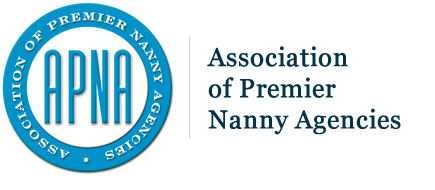APNA agencies have always been committed to creating successful and happy relationships between employees and families which includes advising on HR best practices. Last November, Philadelphia passed landmark legislation, the Domestic Worker Bill of Rights providing for legal protections for all in home employees. The bill goes into effect in May of 2020.
These bills have passed in many other places in the U.S. including New York, Seattle, Massachusetts, Nevada and a few more.They strive to protect domestic workers like nannies and housekeepers from unfair labor practices such as being paid cash under the table and providing basic benefits and rights that most workers enjoy such as paid sick leave.
In Philadelphia, there are an estimated 16,000 domestic workers. This Domestic Workers Bill of Rights is similar to many of the others passed but builds on a few unique protections and will be a model for other bills to follow.

What does this mean for a domestic employer in Philadelphia?
Some of the key features of the bill directly affect a nanny employer in the city of Philadelphia. For example, it is now mandatory to have an employment contract between employer and employee. Philadelphia Nanny Network has been advising parents for decades that this is a good practice as it provides a basis for clear communication between nanny and employer and also protects both in case of issues that may come up down the road. Philadelphia Nanny Network provides a template for all clients to use and now, the city of Philadelphia will have a contract template as well. Any worker who does not have a written contract will be presumed to work under the city’s template.
Another feature of the bill establishes paid time off for every 40 hours worked. All employers must contribute for household employees who work 5 or more hours per month. If a nanny or housekeeper works for multiple families, all families contribute to a pool. More details on this portable benefit are forthcoming and a platform for tracking these hours will be developed.
There will be a minimum of 2 weeks’ notice in case of termination, or full pay in lieu of notice. For live in employees it will be 4 weeks’ notice.
Employers will now be required to keep records of pay rate, leave time earned and hours worked. This is best practice now and federal law states you must keep detailed records of deductions from paychecks. Using a professional payroll company helps to easily satisfy this requirement.
In addition, meal and rest breaks are made mandatory. This is a tricky one. How does an adult who has sole care for a young child take a break?! Well, there is nap-time or instances when a child is at a drop off play-date or school. The expectation the nanny works nonstop from 8am until 6pm has to be set aside. The bill says that workers are entitled to a 30 minute off duty rest break after 5 hours and compensation if a break is not possible. In addition, workers are entitled to 10 minutes off duty for any 4 hours worked. A nanny working a 10 hour shift would then get 30 minutes plus two 10 minute breaks for a total of 50 minutes of time off. If a break is impossible then additional pay each shift must be factored in. All of this is easily documented in the work agreement.
Since inception, APNA member agencies have educated parents and nannies about the importance of a professional relationship. Staying in the know about the Domestic Workers Bill of Rights is a critical aspect of the commitment to educating the public about our industry.
Wendy Sachs is Founder and CEO of Philadelphia Nanny Network, established in 1985. She is a founding member of the International Nanny Association (INA) and a member of APNA. During her career, she has lobbied on Capitol Hill regarding the au pair programs, small business job creation and became a nationally recognized expert on child care having given hundreds of interviews to network television, national magazines and leading newspapers including the Wall Street Journal, Philadelphia Inquirer, New York Times, the Today Show and The Oprah Winfrey Show. Her agency services parents directly and through Employer Sponsored Back Up Child Care. She employs almost 250 nannies.

